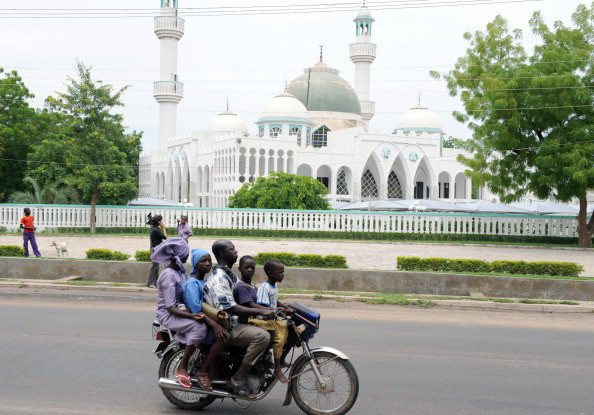Nigeria Boko Haram: 18 killed in suicide bomb blasts at Maiduguri mosque during morning prayer

At least 18 people have been killed in twin bomb blasts in a mosque in Maiduguri, capital of restive Borno state, northern Nigeria. A source close to IBTimes UK said the blasts - believed to have been carried out by one suicide bomber - occurred early on Friday (23 October) morning as Muslims gathered to the mosque for the morning prayer.
The National Emergency Management Agency (NEMA) said it evacuated six dead bodies. A member of the civilian joint task force (CJTF) at the scene told AP the causalities were at least 18.
Maiduguri: Rescuers Deposit 6 Bodies in Mortuary after Early Morning Bombing - PRNigeria
Read:https://t.co/k4OyZZNLl6
— NEMA Nigeria (@nemapress) October 23, 2015No group has yet claimed responsibility, but suspicion is likely to fall on Boko Haram insurgents, who carry out attacks in north-eastern Nigeria and neighbouring countries in their fight to establish a caliphate throughout the occupied territories.
Borno is the group's birthplace and Maiduguri is attacked almost on a weekly basis. This latest attack occurred days after at least 30 people were killed when two suicide bombers attacked a mosque in the Mulai area.
Boko Haram has killed at least 17,000 people since its insurgency became violent in 2009 and a new task force against the group - consisting of 8,700 troops from Nigeria, Niger, Chad, Cameroon and Benin – is ready to take over in the ongoing regional fight against the terrorists.
The Nigerian government alleged the terrorists are surrendering, but the group said in an audio message that claims made by the government and army are false. The person heard speaking in the audio is believed to be Boko Haram's leader, Abubakar Shekau, who is rumoured to have been replaced due to his repeated absence from the group's videos.
Who are Nigeria's Boko Haram terrorists?
Boko Haram (recently renamed Iswap) fights against Western influence in Nigeria and aims to impose its version of Sharia law in the country. The group declared an Islamic caliphate in Gwoza, along the Cameroon border, in August 2014.
Boko Haram has raided several cities in the north of the country in a bid to take control of more territory. Three states − Adamawa, Borno and Yobe − have been under a state of emergency since May 2013, due to Boko Haram's attacks.
© Copyright IBTimes 2025. All rights reserved.




















